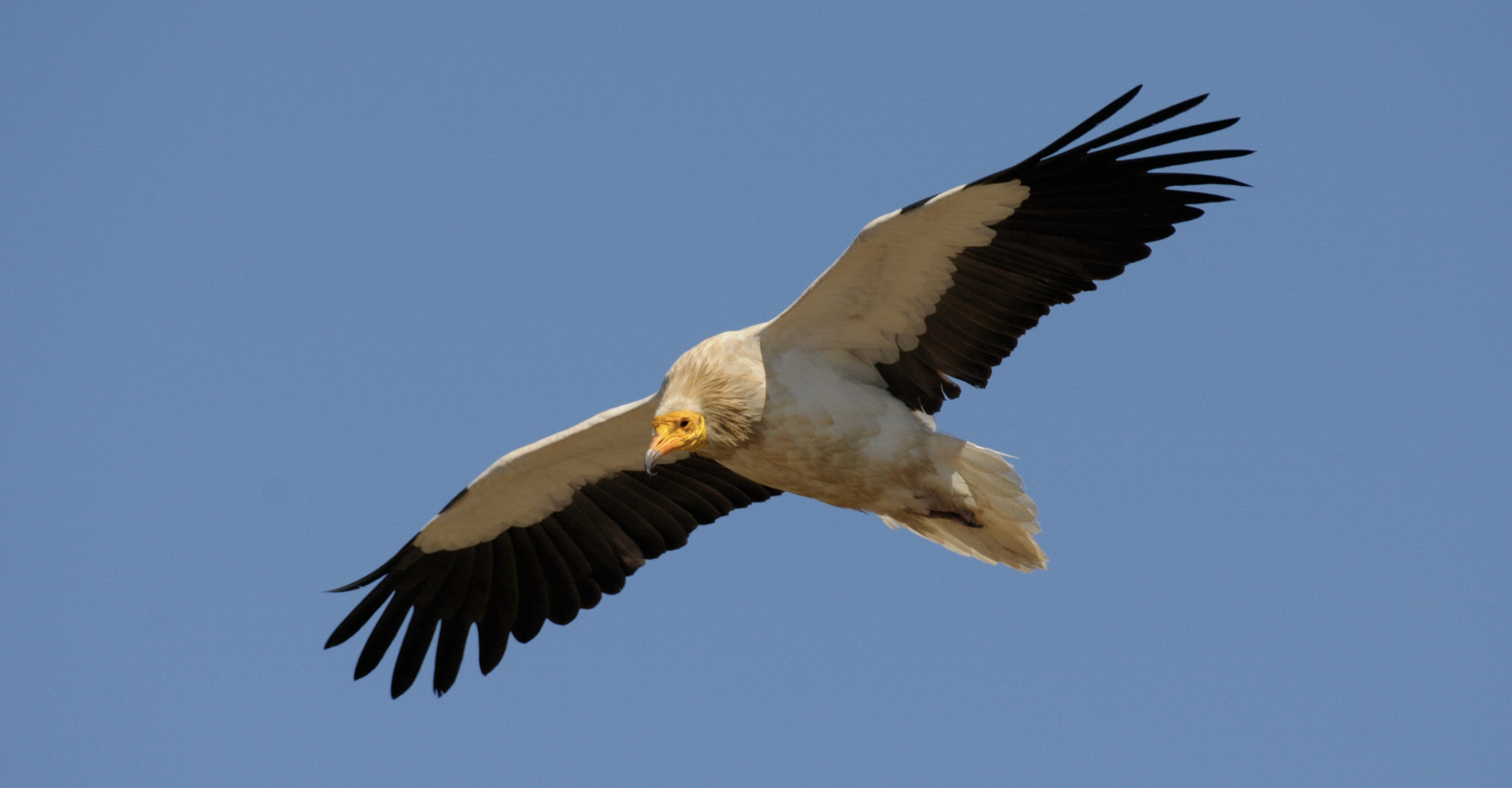
After a gap of four years the Macedonian Ecological Society restarted the annual population survey of the Egyptian vulture breeding grounds in FYR Macedonia this year and revealed worryingly, that the number of occupied territories in the country has decreased by 30 percent. Based on observations the population in the country numbers just 13-14 pairs, the lowest ever recorded level.
Egyptian vultures in FYR Macedonia

The population of Egyptian Vultures in the central region of FYR Macedonia is one of two main populations of the species in the Balkans. During the last survey it was estimated that there were around 20-21 pairs in Macedonia, but in 2018 the population number just 13-14 pairs. In total it’s estimated that between 60 and 80 pairs of Europe’s smallest vulture across the Balkans. The largest population is in the Eastern Rhodopes (Bulgaria and Greece) with around 28-30 pairs, in Greece the population consists of just five pairs, in Albania around 9-10 pairs and in the European region of Turkey has around 2-3 pairs.
Over the last three decades there has been a four to nine percent annual decline in the population.
Threats to Egyptian vultures in FYR Macedonia

Like elsewhere in the Balkans the biggest threat to Egyptian vultures in their summer grounds is the illegal practice of wildlife poisoning. Since one of the worst mass poisoning incidents in the region in 1993 when 60-70 adult birds (around 30 percent of the then population) was killed in just one day the population has not been able to recover. Increasingly, as a result of the diverse diet of Europe’s smallest vulture, poisoning caused by agricultural chemicals is having an impact on the population.
The Balkan Anti-Poisoning Project is currently working across five Balkan states including FYR Macedonia and aims to engage all relevant stakeholders to bring about changes to protect vultures like the Egyptian vulture against this insidious practice.
Surveying FYR Macedonia’s Egyptian vultures

After an absence of four years the Macedonian Ecological Society as part of the Egyptian Vulture New LIFE project restarted and carried out the country’s survey of the population of Egyptian vultures. It was thought that like the population in the Eastern Rhodopes FYR Macedonia’s population was stable, however, it would appear that just like the other populations across the Balkans it is in fact shrinking.
In total of 13-14 active territories were confirmed in 2018, and eight fledglings were observed. Compared to the last population survey in the country in 2014 the number of occupied territories has shrunk by an alarming 30 percent.
It should be noted this decrease may be the result of the timing of the survey, being relatively late in the season and potentially missing early fledglings, but the downward trend is still very worrying.
Egyptian Vulture New LIFE

Working collaboratively projects like the Egyptian Vulture New LIFE aims to reinforce the Egyptian vulture population in their Europe’s easternmost range across the Balkans. By actively managing and restocking the population by releasing captive-bred birds the project will support the small Balkan population which number between 60 and 80 pairs across the whole region. The project is working to deliver conservation measures that eliminate major known threats such as illegal poisoning and electrocution in their summer breeding grounds. Monitoring the population closely using GPS transmitters will also help the project tackle the major threats Egyptian vultures face. The Egyptian Vulture New LIFE is a partnership of organisations, led by the Bulgarian Society for the Protection of Birds and Bulgarian conservation organisation Green Balkans,from 14 countries spanning Europe, the Middle East and Africa, to protect Egyptian vultures not only in Europe but all along their migratory flyway.



